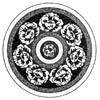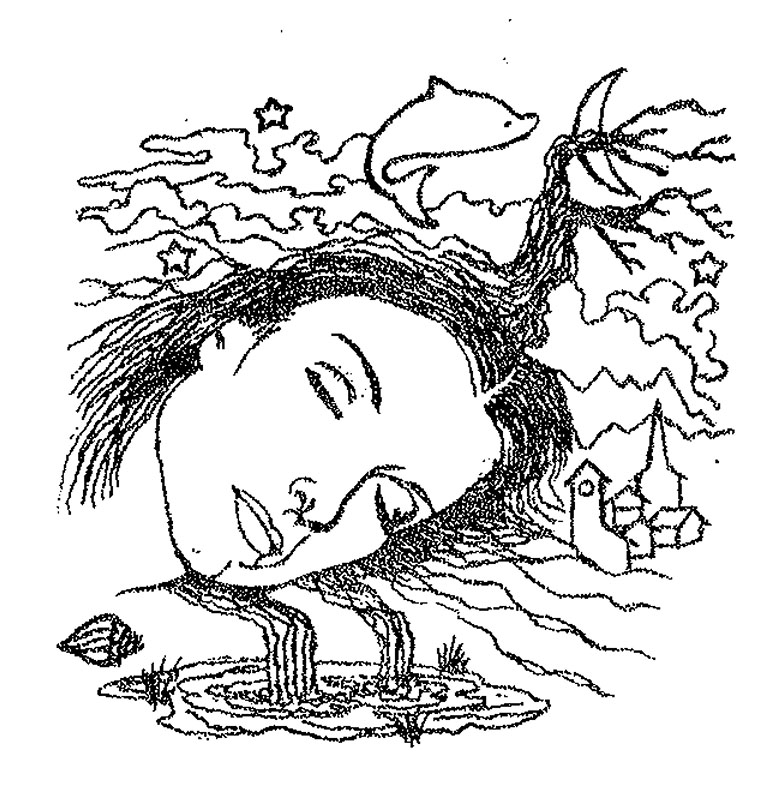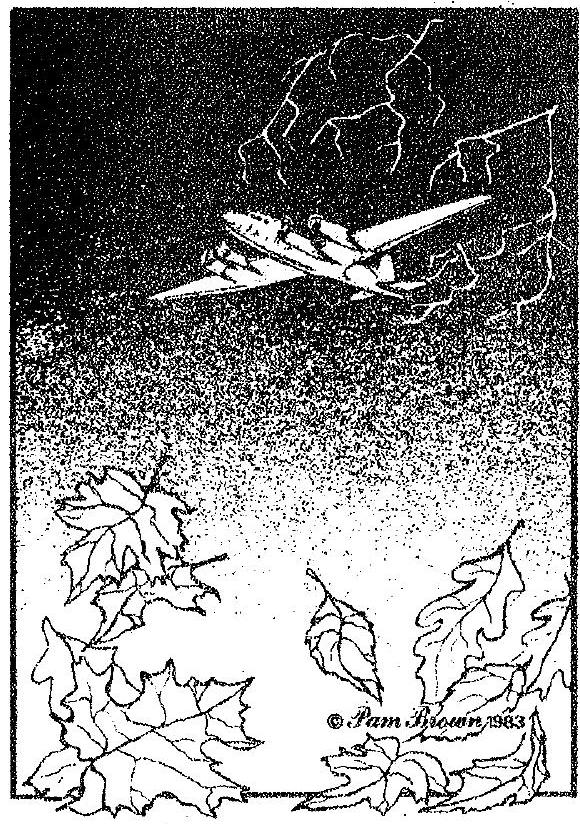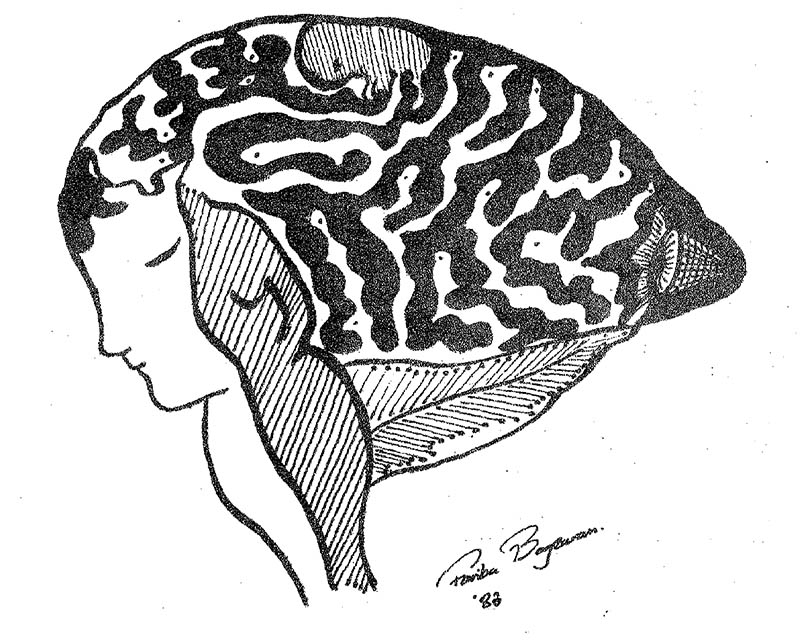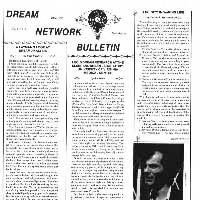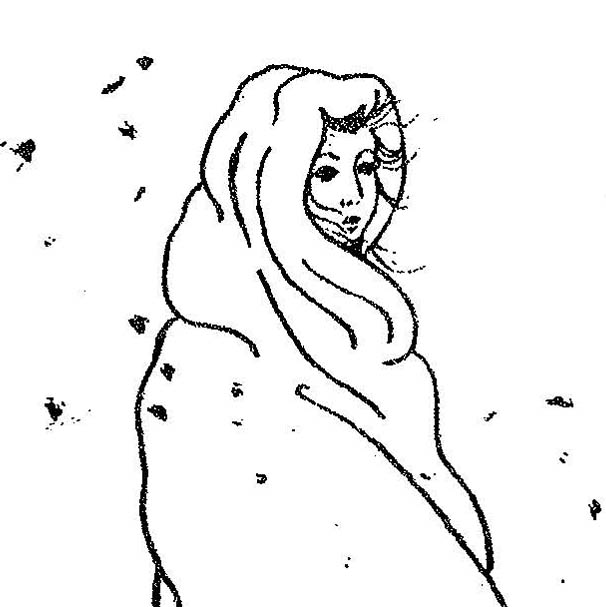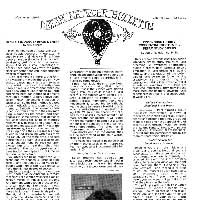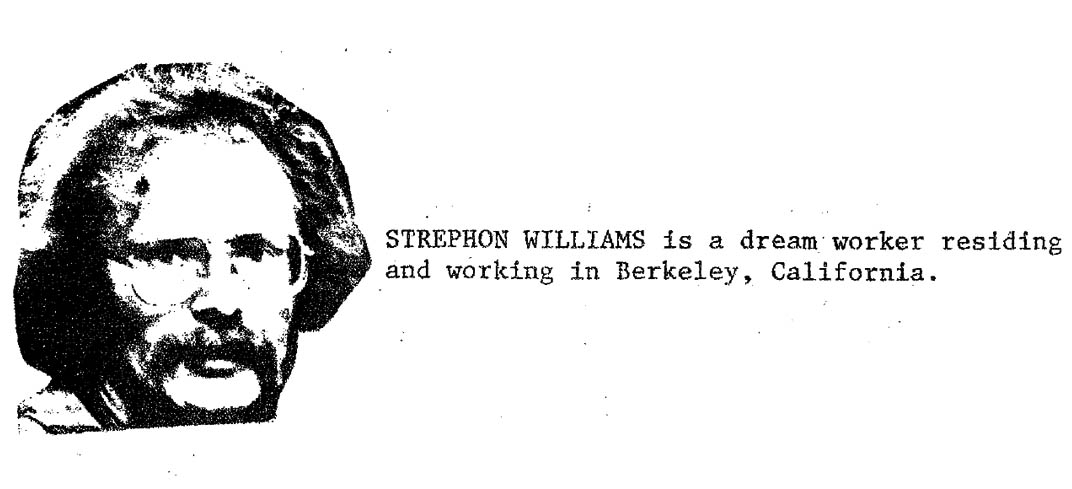Editor's Note: The following is a description of how Jungian dreamwork can be conducted in a group setting, based on a workshop led by Robert Bosnak in Portland, Maine. It appeared in the Coat of Many Colors
"The dream is the most pure form of the imagination", said Jungian psychoanalyst Robert Bosnak in presenting an intensive day-long workshop, "Understanding and Working with your Dream", at St. Luke's Parish House in Portland, Maine, Feb. 5.
Bosnak led the 30 workshop participants on a journey exploring the images of dreams. His workshop included an introduction to dream theory from a Jungian perspective, exercises to improve dream recall, and training in how to listen to and work with one's dreams.
"To work with dreams", said Bosnak, "you need a certain level of detail".
He guided the group in an exercise of "active imagination" in order to enhance their ability to remember and see detail in their dreams.
"Remember a place you lived in, an easily remembered childhood home is best", Bosnak directed. Through a series of questions, attention was focused on increasingly more specific detail, such as the placement of appliances in your kitchen to the doorknob of your front door.
Bosnak suggested some avenues to explore the images that came up during this exercise, "Notice if there were any differences between what you imagined and what you know to be the historical reality of a piece of detail. (an imagined room with a different wallpaper pattern than the historical room, for example). You can look to find a metaphor there".
"Notice if you find any images you had lost or not thought of in a long time. Also notice specific experiences that cone up in different rooms".
"Begin to communicate with those images", Bosnak urged, "Make friends with them and form new communications with yourself".
In working with a dream volunteered by a workshop participant, Bosnak created what he termed a "state of solution" in the group to dissolve the separation between the dream-teller and the listeners.
The dream was told twice. For the first telling, Bosnak advised, "Be aware of issues that are heavy on your mind. Next, be aware of and register your floating tension. Floating tension is physical or emotional feelings you have both before and during the telling of a dream. Don't pay attention to the dream's actual content during the first listening".
"In registering your floating tension, there are three important points to focus on:
notice the images when you feel bored;
notice when your own images have no logical association to the dreamer's images;
notice any physical experiences, tightness in part of the body, for example".
For the second telling of the dream group members were directed to listen carefully to the content of the dream.
The volunteer related her dream. As she did, she and the listeners seemed to be dreaming a common dream. The "state of solution" which Bosnak had created, resembled a dream itself.
In this state, Bosnak explored the drean by a series of specific questions directed to the dream images. His strategy, he explained, was based on an intuitive approach.
He suggested some starting points for exploring the images of the dream:
start with an image that overwhelms you;
start with an image you see as trivial;
start with a familiar image which is somehow different from the historical reality of that image.
"The art of working with dreams", Bosnak said, "is to stay as close to the image as you can... You dream the dream onward... You get to a point where the dream is as real as it was, and you begin to pursue the dream images".
"The problem with group work (on dreams) is that the more personal it becomes, the higher the resistance" Bosnak pointed out.
In working with groups, he considers the two principles of alchemy: "the pressure of the liquid and the strength of the vessel". He compared the dream to the liquid and the group to the vessel.
"A newly formed group such as this one is fragile and can only support a certain level of intimacy and depth of the dream images", he said.
"You can gauge the level of depth you're at when working with a dream when you literally feel like you're coming up from being submerged".
The Zurich-trained analyst said that his method of questioning the dream images is different from a Gestalt approach. The dreamer does not become the dream images he/she questions.
In addition, Bosnak suggests, "When you ask questions to the images in the dream, wait for them to answer, then notice how the images change". An example from the group workshop was a dream image which initially was seen as large and looming, after questioning, became more normal appearing.
Because of the overwhelming response to Bosnak's workshop in Portland, Maine, another will be offered April 30. These workshops are sponsored by the Friends of Jung, a Portland area organization founded in 1979 to promote the ideas of the Swiss psychiatrist.
Bosnak is a training analyst at the Jung Institute in Boston, MA. He received his analytical training at the Jung Institute in Zurich, Switzerland, trained under James Hillman, and also holds a law degree (J.D.) from Leiden University in Holland.
He has worked with the Eranos Foundation in Ascona, Switzerland, and as a staff analyst at the Klinik am Zurichberg in Zurich. Bosnak teaches dream seminars and workshops in Boston, MA,
Amsterdam, Holland and at the Archetypal Studies Center in Minneapolis, MN. He has an ongoing dream group in Cam bridge, MA where he also has a private practice.
In assessing the relevancy of Jung's approach for contemporary dreamwork, he said, "The emphasis on the realm of the psyche has become more and more important since the time of Jung's original contributions. The autonomous realm of images has also become more important, as has the possibility of communicating with these images".
"Jung's assertions that dreams have collective components and that the manifest content of dreams has meaning are still relevant", Bosnak maintains. "Jung's feminine psychology doesn't entirely fit, but his descriptions of the feminine archetype have value when applied at a personal level in men and women".
Bosnak has organized an international conference on nuclear war entitled "Facing the Apocalypse" to be held at Salve Regina College in Newport, Rhode Island, June 10-12. Contact the college for reservations.

